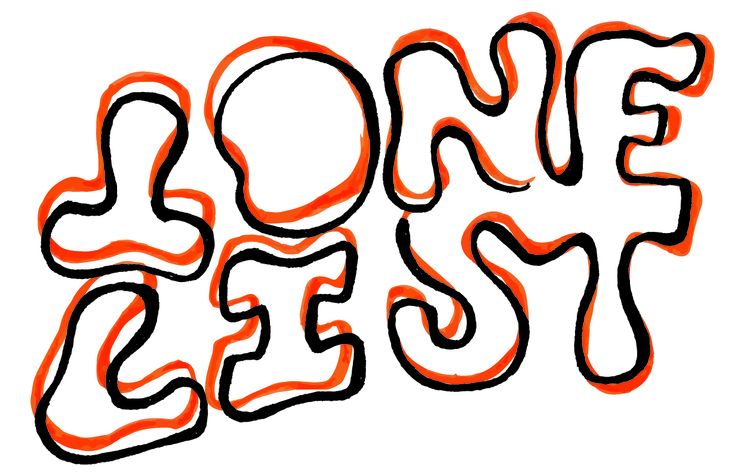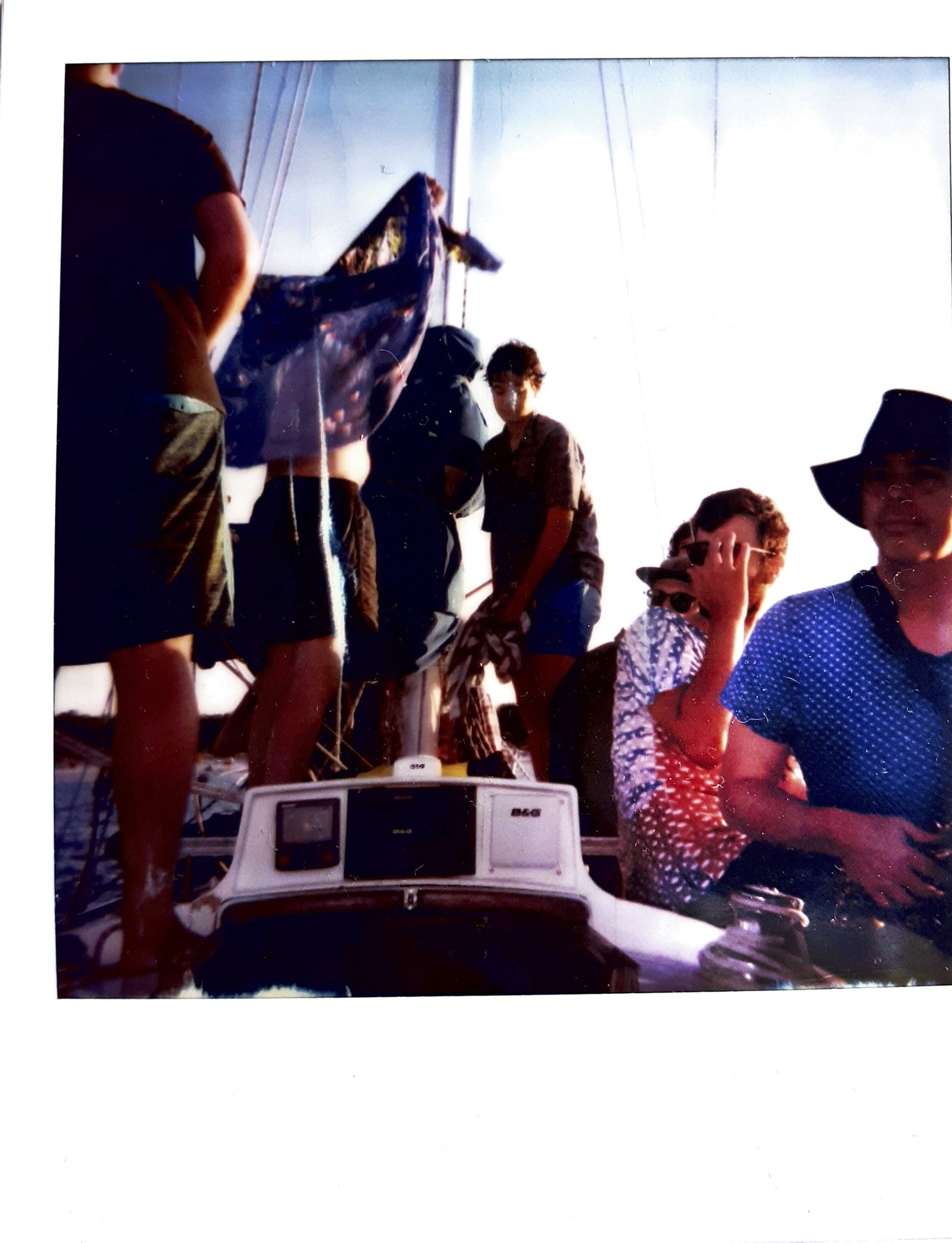Interviews by Kate Pass. Photos by James Whineray & Adam Buckley.
Kate: We’re really excited to hear your new band, jalan-jalan. What does jalan-jalan mean, and what can audiences expect on the night?
Djuna: Jalan-jalan means ‘to walk’ in Malay. I wanted our name to capture the energy we bring to the music. I like the way that our name references a walking bass, which creates a sense of movement and forward propulsion. You won’t hear many walking bass lines in our music but some of the more varied approaches I use evolved from these foundations, using groove and pulse as a starting point and moving into more melodic territory to form a more active counterpoint.
Kate: Can you tell us about your journey as a jazz musician, and how you became involved in the experimental side of improvisation?
Djuna: I have many fond memories of going to see PJS gigs at Hyde Park Hotel as a kid. It really inspired me to pursue music and go to WAAPA. Coming from more of a classical background, discovering how to improvise over chords and play jazz tunes was both intimidating and exciting. To some extent I think I’ve always tried to keep that feeling of unfamiliarity and excitement in the music that I play and this is maybe how I became more drawn to freer and more open playing.
Kate: As well as being an incredible musician, you’re also an architect! How does your design background influence your music?
Djuna: I find that both fields take inspiration from one another and there are many similarities in how I approach designing spaces and sounds. The design process can be very slow, sometimes taking years for a concept to become a physical reality so it’s nice to be able to just pick up my instrument and play - maybe this is what draws me to improvised music - the pace at which it can unfold.
Kate: What advice would you give to people experiencing improvised experimental music for the first time?
Djuna: For new listeners, experimental music can be unfamiliar and challenging in its mode of expression, but the uniqueness that can initially be confronting is also the music’s strength. One of the things I love about experimental music is that every musician approaches form in an entirely different and personal way, so the listening experience can be quite vulnerable and revealing. It doesn’t have to be serious or super introspective either; it can be lively, and fun. Jalan-jalan officially endorses dancing at our performances.
Kate: What are you most looking forward to at Audible Edge Festival?
Djuna: I’m feeling pretty inspired from what has been on so far and am really looking forward to Nika Mo’s album launch on April 14 at the Rechabite.
Kate: How would you describe your music? What can audiences expect on the night?
Ben: It’s always difficult to describe your own music, but what I can say is that it’s mostly informed by free jazz, experimental rock, post-bop and noise. There are some specifically composed sections and some loosely-structured free sections, all interwoven with passages of noise and improvisation. Everyone has been gradually incorporating effects into their set-ups as well so I feel like we’ve tapped into a really interesting blend of acoustic and electronic sounds.
Kate: Can you tell us about your journey as a musician, and how you became involved in the experimental side of improvisation?
Ben: I started out playing a lot of punk and metal but over time I found myself drawn to music which incorporated more improvisation. I got deep into progressive/experimental rock and free jazz and eventually found my way to non-idiomatic free improvisation and noise music. Drummers like Chris Corsano and Frank Rosaly were putting out some really interesting solo and collaborative work, so I started exploring similar approaches in my own practice and began experimenting with contact mics and guitar effects pedals. Once I started putting this stuff together, it became a big part of my sound and I brought these elements into the bands I was playing with. From there, it was a natural step to seek out more people to play with and I was introduced into the Perth experimental scene through regular gig series like Noizemaschin! and Outcome Unknown and through affiliation with the fine people at Tone List.
Kate: You’ve worked in such a diverse range of genres, from successful post-rock bands, jazz ensembles and now experimental new music. How does Ben Greene Sextet tap into all these different influences?
Ben: The use of improvisation, effects and noise passages during performance is something that we explored quite a bit in Tangled Thoughts of Leaving, so I feel like that may be one of the more direct comparisons that could be made. Given that the other two members of the trio orphans are also in this sextet, there is definitely some aesthetic and conceptual overlap there as well. Otherwise, I feel that the influence I’ve taken from different experiences is more generalised – things like approaches to structuring free improvisation, to writing and presenting scores, to utilising the strengths of your group and organising/leading productive rehearsals. These are all skills and approaches that I am still developing in leading the group, but I’ve definitely taken on board the ideas of others I have worked with who have handled these things well and have noticed the difference that it can make to the cohesiveness of a performance.
Kate: Your new sextet is an expansion of the trio orphans, and features some great musicians such as Dom Barrett, Jonathan Brittain, Adam Buckley, Dan O’Connor and Finn Owen. Has working with a larger ensemble changed your approach to drumming and composing?
Ben: Ha! Well, in putting the group together I was mostly selecting for people who’s playing I enjoyed and who I felt would be able to connect with the music and bring something special to the mix. With Dan and Dom on board, there is obviously a link to orphans, but I also have a noise-rock duo project with Adam called Dez Cartez, and have played with Finn and Jonathan in various funk, jazz and free settings. That is to say, I feel this group is an expansion of all of those musical relationships and so working with everyone at once has caused me to consider ways of integrating the drumming approaches I have taken in those different settings into one broader approach which can bring it all together. I’m going from more conventional jazz time-keeping, to playing totally free, to textural accompaniments, all while triggering effects and generating loops. These are all things I’ve done before but not necessarily in the same set of music, so it has been a great challenge to undertake.
As for the composition aspect, it is all quite new, so it is not so much changing as it is forming my approach. This will be the first time that I am presenting my own compositions in public, so I am equally terrified and excited about it!
Kate: What are you most looking forward to at Audible Edge Festival?
Ben: I think I’d have to give that nod to Paul Briggs and Gracie Smith, who are playing a duo set the night after our gig. Paul is the guitarist from Tangled Thoughts of Leaving and Gracie is their new drummer, who is also very active in the Perth experimental scene. Very interested to see what these two are up to – I’m expecting some noisy/doomy/jazzy vibes!
Kate: What advice would you give to people experiencing improvised experimental music for the first time?
Ben: I would say be sure to surrender yourself fully to the experience. As well as the expression of musical ideas, sometimes improvised music is just as much about the effect that sound itself has on the listener over time. This can mean that it requires a certain level of engagement in order to be fully appreciated (and sometimes closing your eyes can help). I personally have been taken on some amazingly transcendent and introspective journeys by great improvised performances. I suppose this can be true for all music, but I think being conscious of this can help to bridge any gap that you may notice between yourself and the performance. Having said that, improvised music is just like any other music in that sometimes it just isn’t very good (haha), or may not be to your taste… but don’t be discouraged! Come out and see a bunch of things and you may be pleasantly surprised.



















